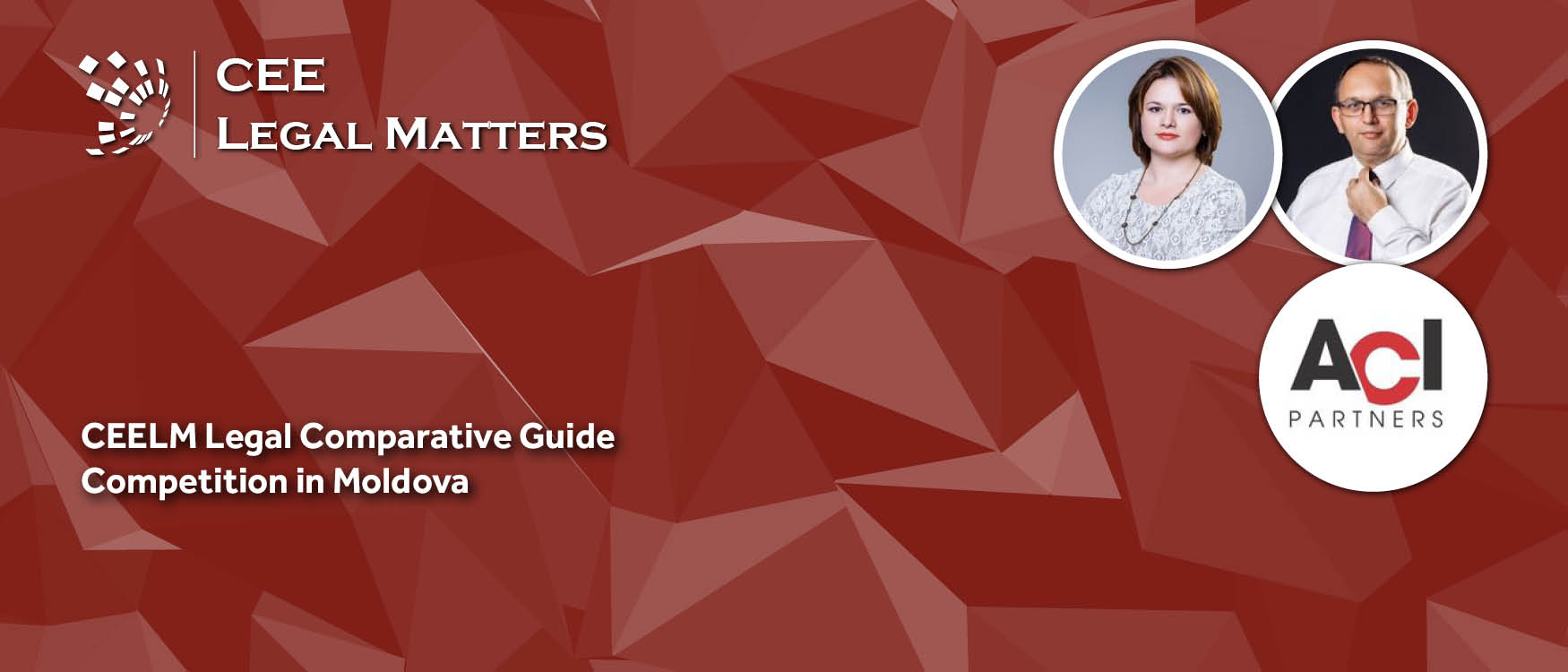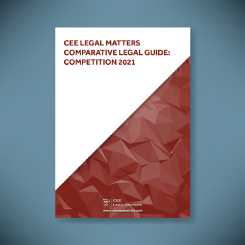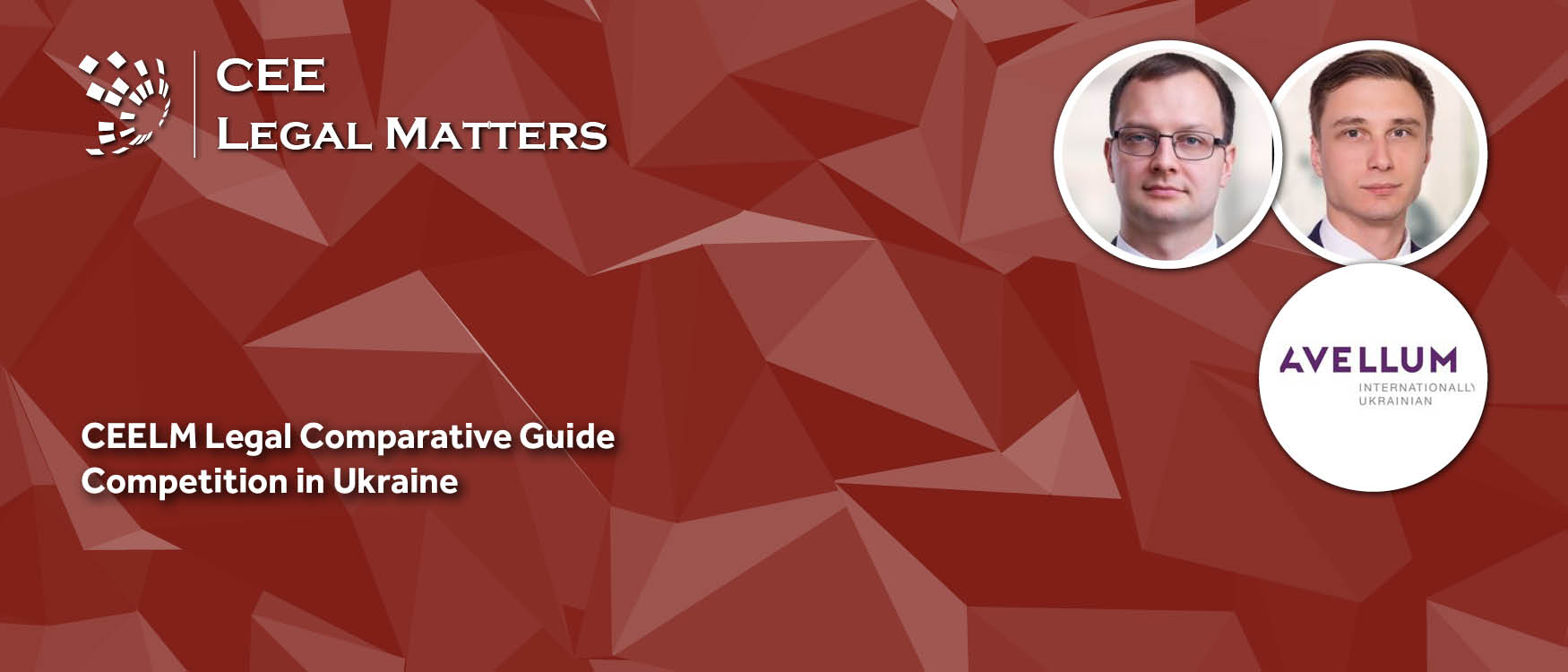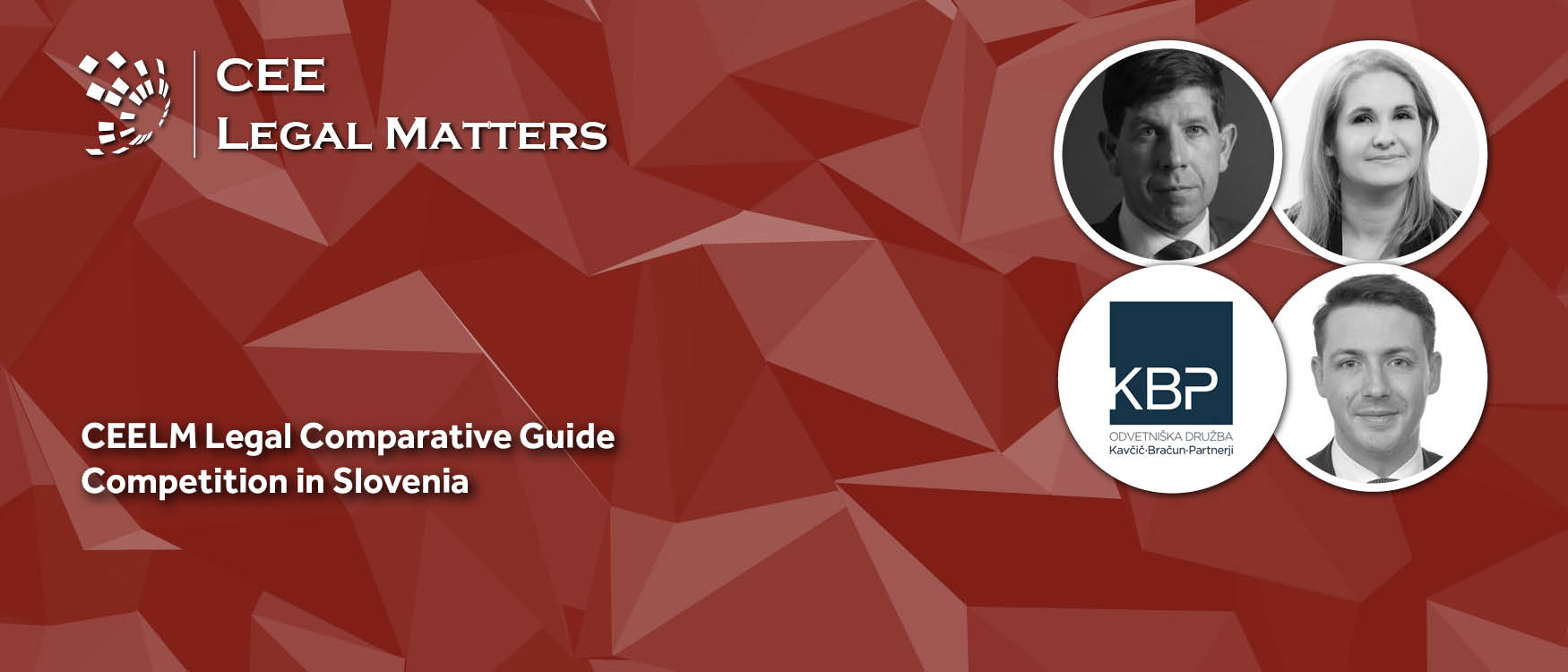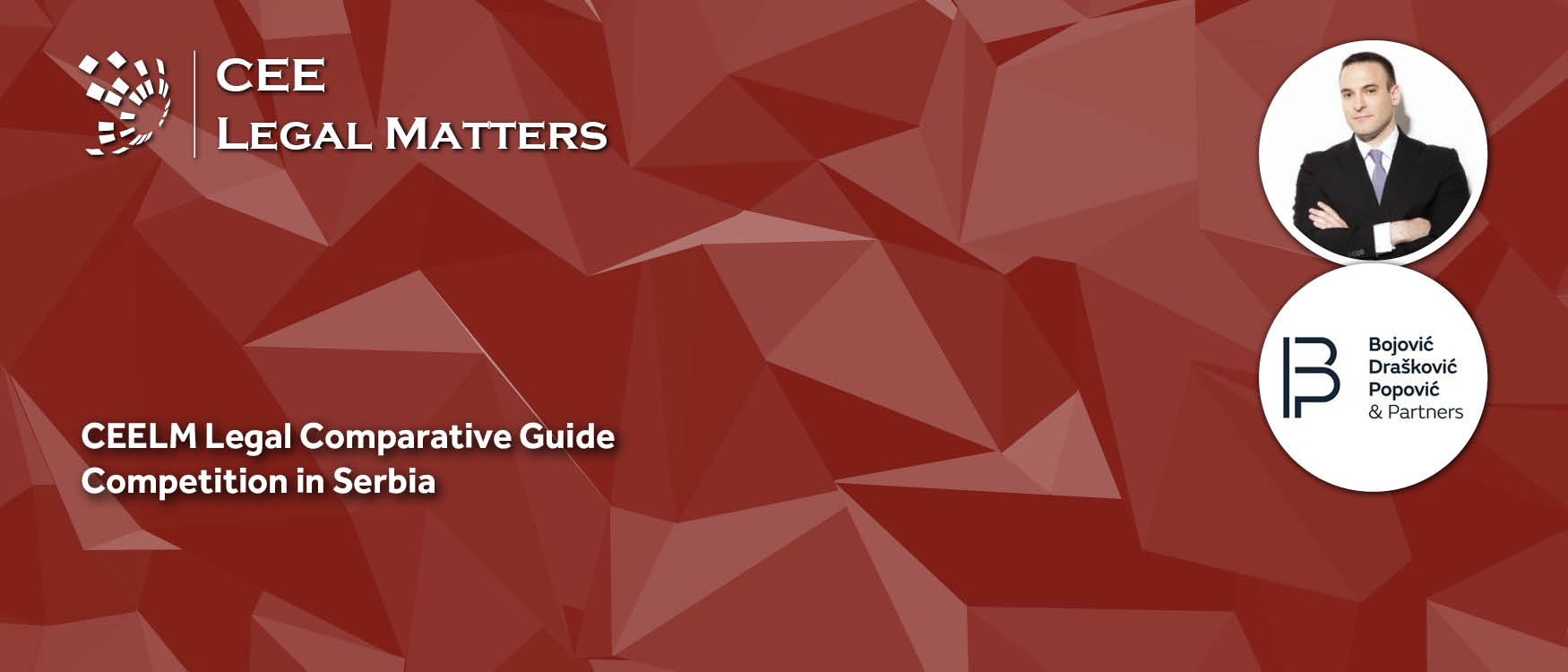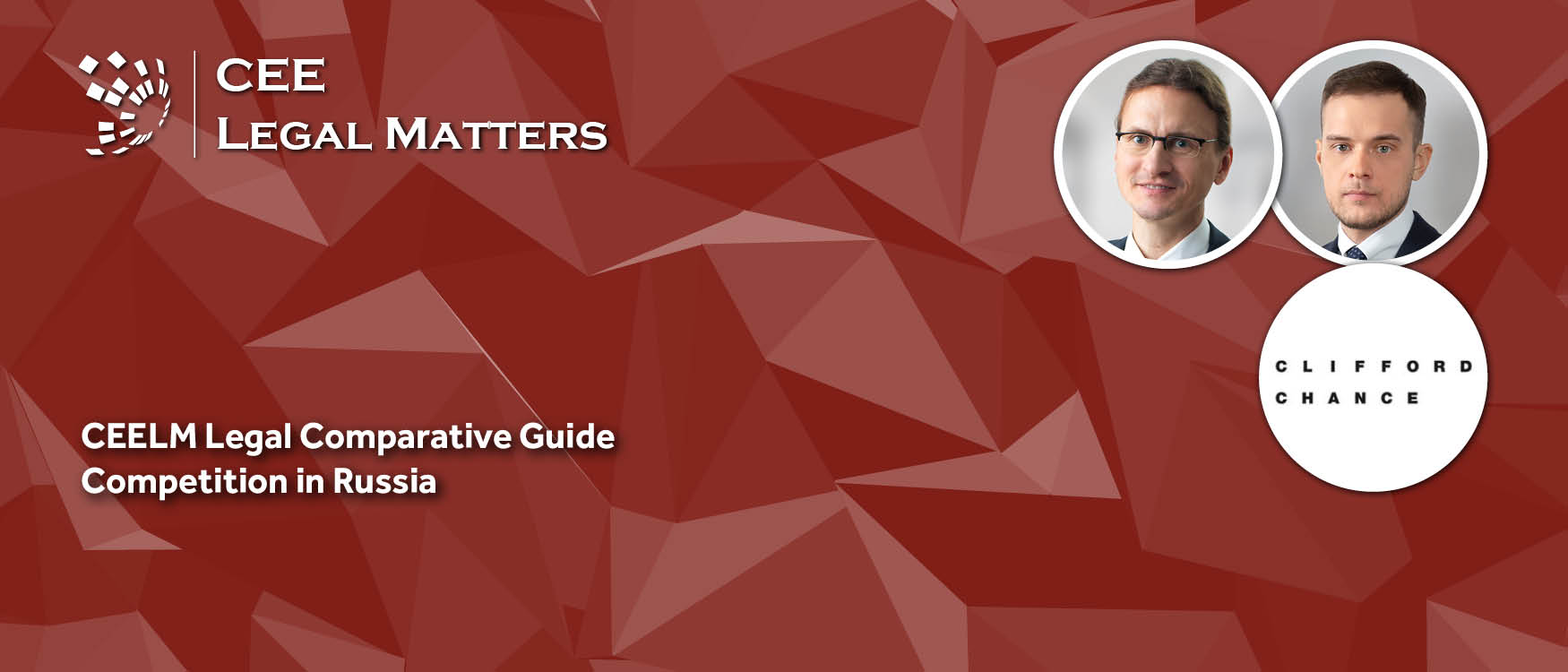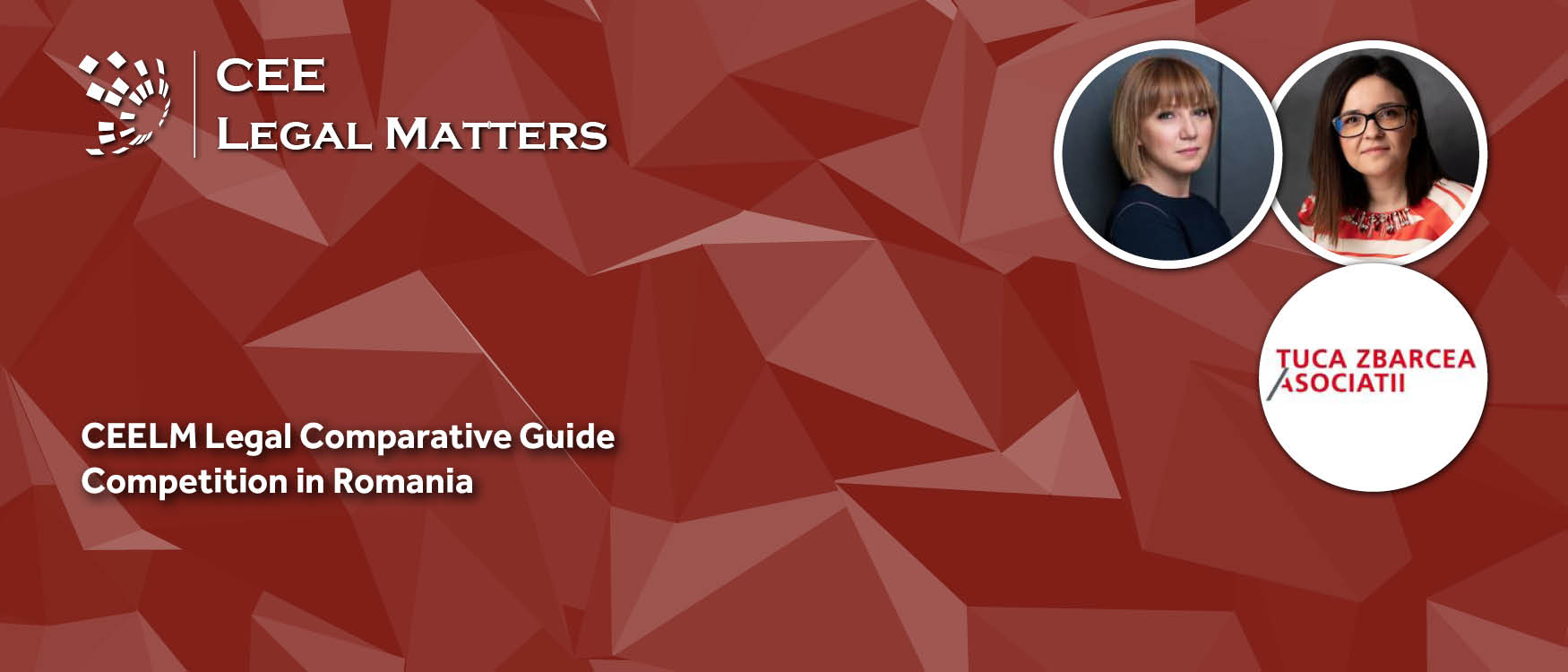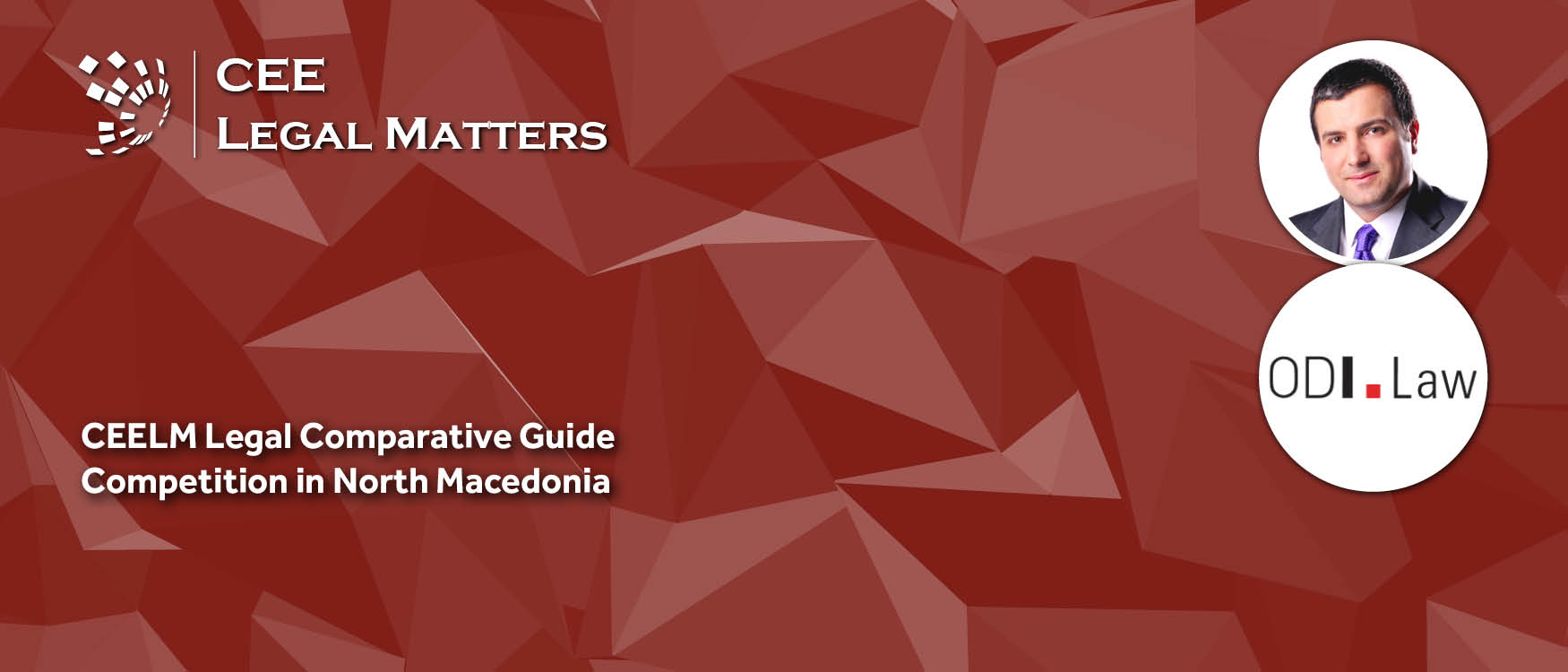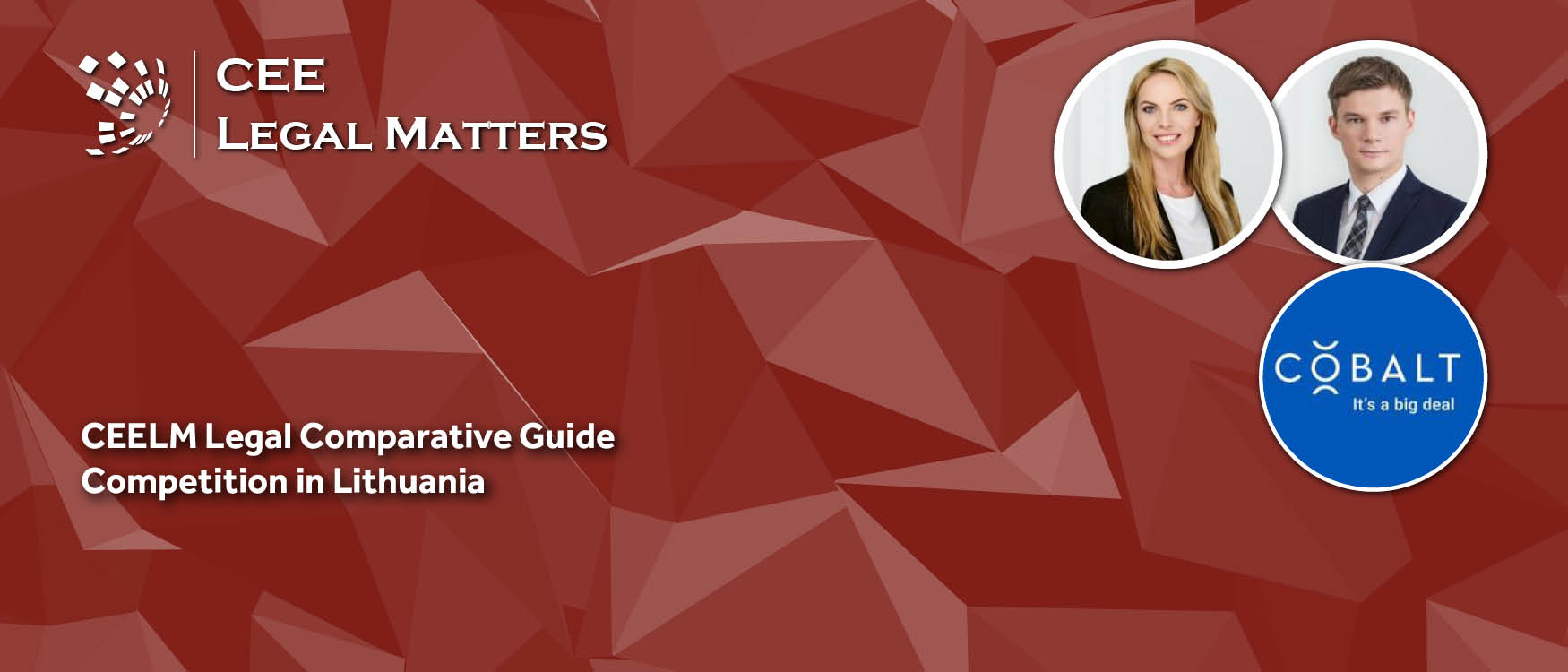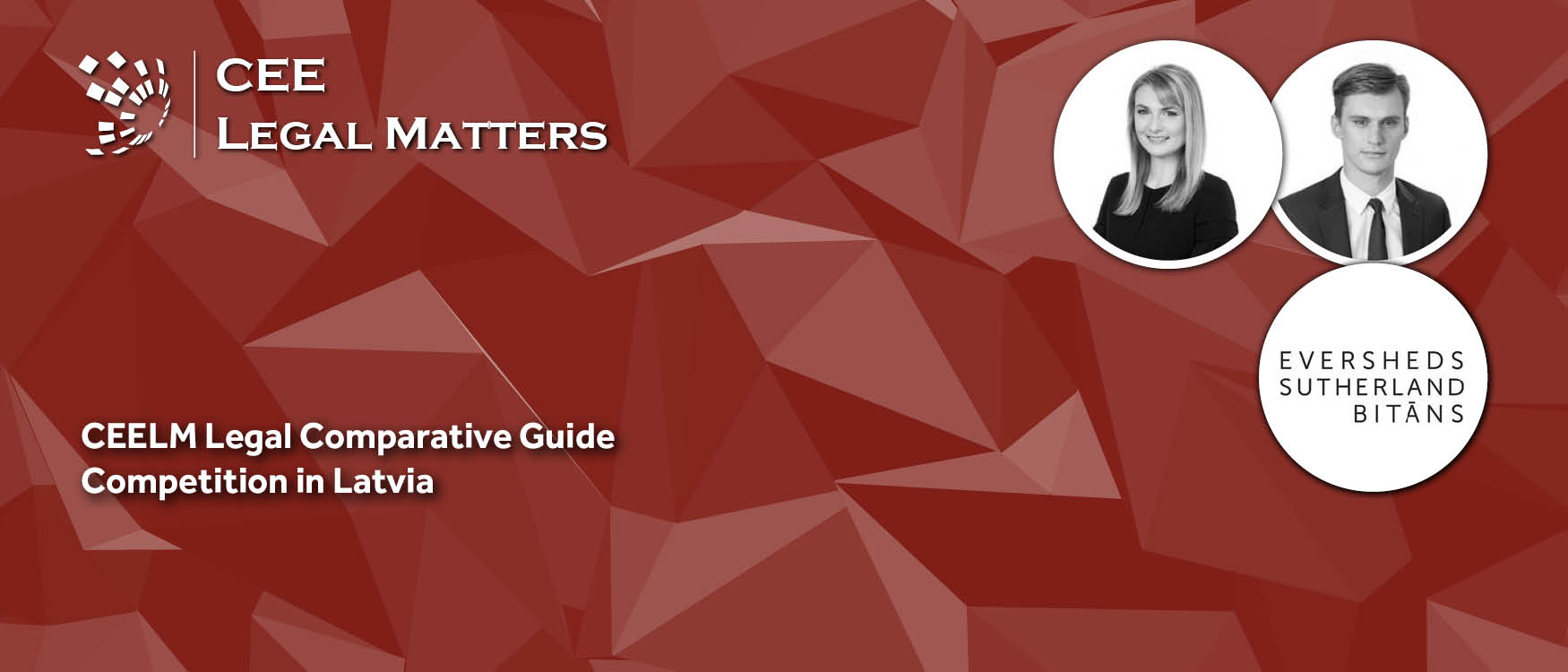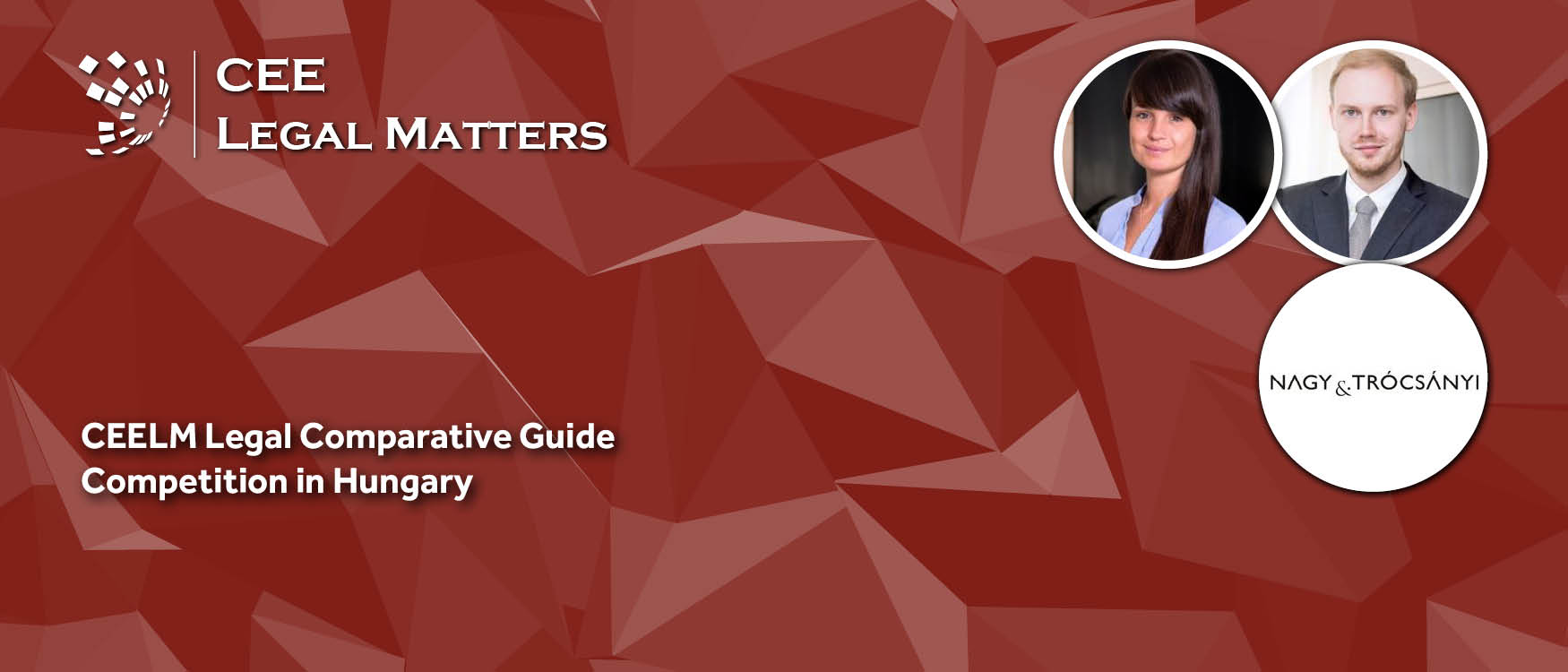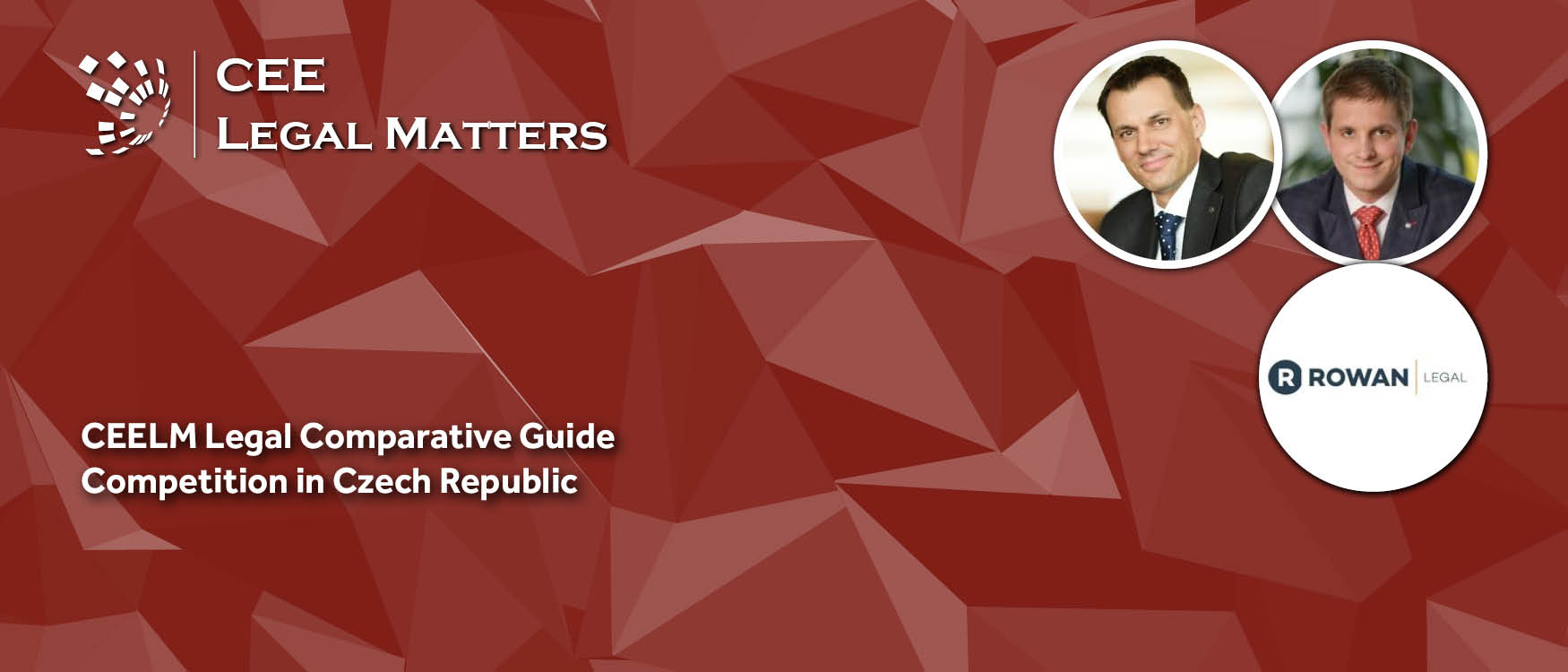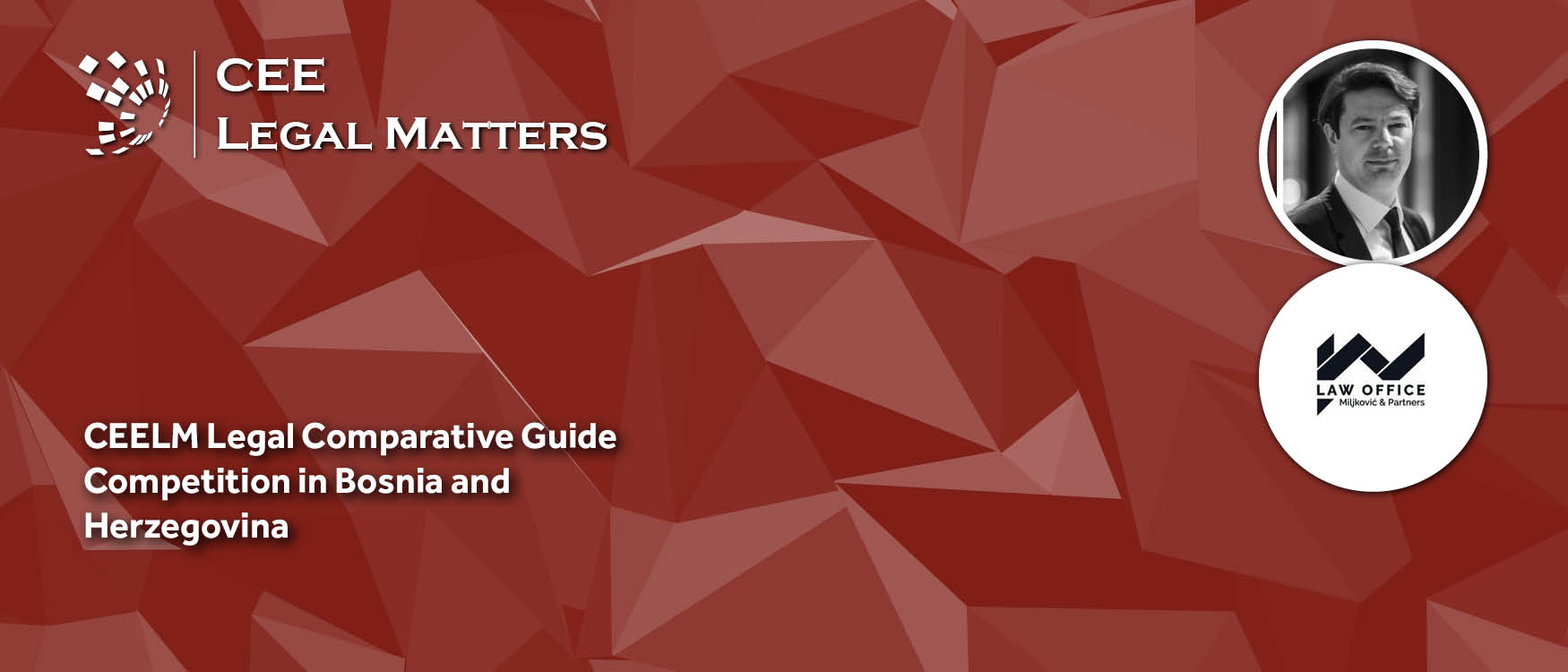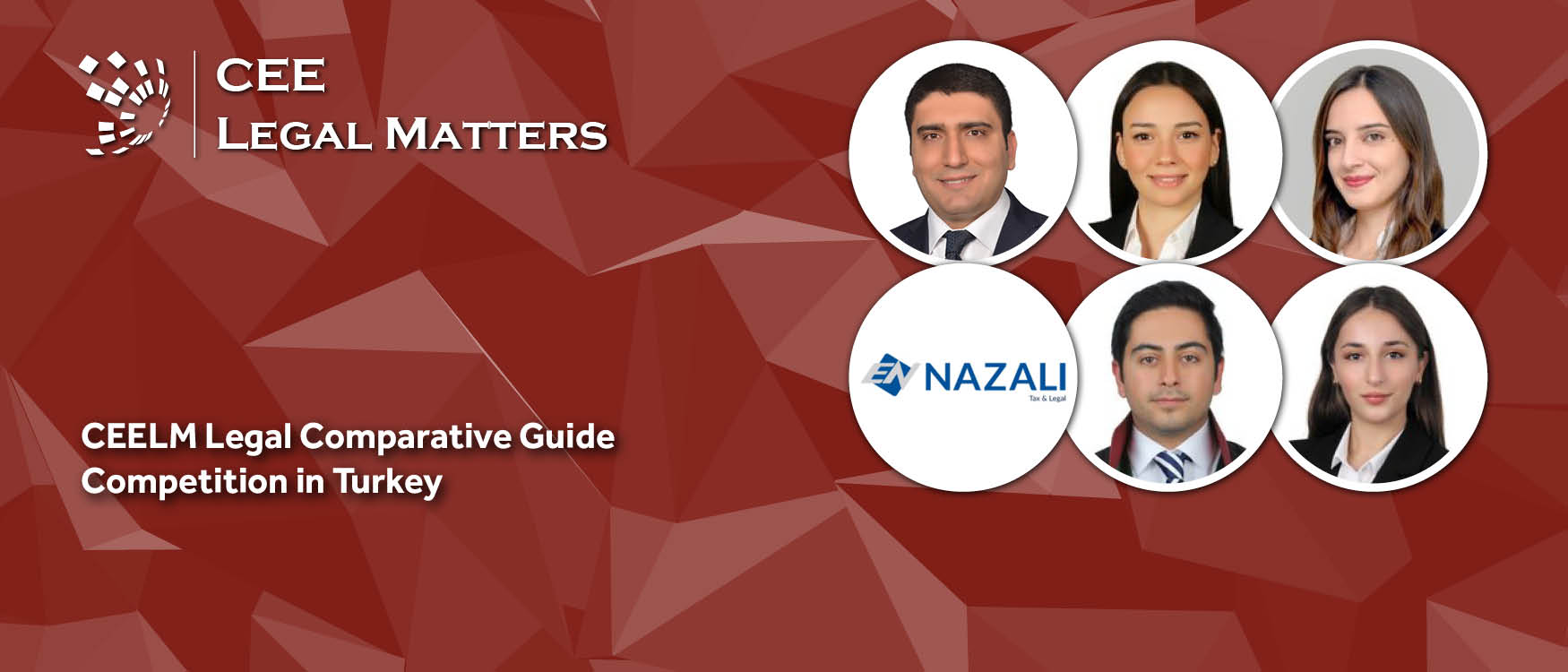Contributed by ACI Partners.
1. What are the main competition-related pieces of legislation in the Republic of Moldova?
The Republic of Moldova has a young competition regime compared to other European countries with a long and stable market economy experience. After more than 40 years of Soviet planned economy, Moldova obtained its independence in 1991 and since then has developed its national legislation in the spirit of a free economy. Since its independence, one of Moldova’s international commitments toward its European partners was to create legislation based on non-discrimination, transparency, and fairness that would promote the competition policy of the state by preventing, limiting, and suppressing anticompetitive conducts on the market.
The first experience of Moldova to regulate rules promoting competition was the Law on Limitation of Monopolistic Activity and Development of Competition No. 905 dated January 29, 1992, repealed on September 14, 2012. The law represented the foundation of competition-based principles and market behavior in the young Moldovan democracy. In 2000, the Parliament had a second attempt to adjust competition rules and adopted the Law on Protection of Competition No. 1103 dated June 30, 2000, repealed on September 14, 2012. This law was the first attempt to institutionalize an independent state agency dedicated to promoting competition policy, examining anticompetitive conducts, and approving takeover transactions.
The Competition Law No. 183 dated July 11, 2012, which is currently in force, is the result of transposing into Moldovan law Articles 101-106 of the TFEU of 25 March 1957, the Council Regulation (EC) No. 1/2003 dated December 16, 2002, on the Implementation of the Rules on Competition Laid Down in Article 81 and 82 of the treaty, and partially the Council Regulation (EC) No. 139/2004 of January 20, 2004, on the Control of Concentrations between Undertakings. Simultaneously, the Parliament approved the Law on State Aid No. 139 dated June 15, 2012.
Below is a list of secondary legislation on competition and state aid in Moldova.
- Regulation on the Assessment of Vertical Anticompetitive Agreements No. 13 dated August 30, 2013;
- Regulation on the Assessment of Horizontal Anticompetitive Agreements No. 14 dated August 30, 2013;
- Regulation on Assessment of Anticompetitive Technology Transfer Agreements No. 15 dated August 30, 2013;
- Regulation on Dominant Position and the Assessment of Abuse of Dominant Position No. 16 dated August 30, 2013;
- Regulation on Economic Concentrations No. 17 dated August 30, 2013;
- Regulation on the Acceptance of Commitments Submitted by Undertakings No. 2 dated January 22, 2015;
- Regulation on the Council of Experts of the Competition council No. 1 dated March 3, 2016;
- Regulation on the Form of Notification, Procedure for Examination and Adoption of Decisions on State Aid No. 1 dated August 30, 2013;
- Regulation on State Aid for Employee Training and for the Creation of New Jobs No. 5 dated August 30, 2013;
- Regulation on Aid for Rescuing Beneficiaries in Difficulty No. 6 dated August 30, 2013;
- Regulation on State Aid for the Establishment of Enterprises by Women Entrepreneurs No. 7 dated August 30, 2013;
- Regulation on State Aid for Research and Development and Innovation No. 8 dated August 30, 2013;
- Regulation on State Aid Granted to Small and Medium-Sized Enterprises No. 10 dated August 30, 2013;
- Regulation on State Aid Granted to Beneficiaries Entrusted with the Operation of Services of General Economic Interest No. 11 dated August 30, 2013;
- Regulation on State Aid Intended to Remedy a Serious Disturbance in the Economy No. 12 dated August 30, 2013;
- Regulation on State Aid Register No. 3 dated August 30, 2013;
- Regulation on Assessment of State Aid for Financing of Airports and Start-Up Aid to Airlines No. 4 dated July 25, 2014;
- Regulation on Assessment of State Aid for Railway Undertakings No. 3/10 dated September 8, 2016;
- Regulation on Assessment of State Aid for Rapid Deployment of Broadband Electronic Communications Networks No. 3/1 dated September 8, 2016;
- Regulation on Assessment of State Aid for the Steel Sector No. 3/2 dated September 8, 2016;
- Regulation on Assessment of State Aid for Public Service Broadcasting No. 3/3 dated September 8, 2016;
- Regulation on Assessment of State Aid for Films and Other Audio-visual Works No. 3/4 dated September 8, 2016;
- Regulation on Assessment of State Aid for Public Rail and Road Passenger Transport Services No. 3/5 dated September 8, 2016;
- Regulation on Assessment of State Aid to Shipmanagement Companies No. 3/6 dated September 8, 2016;
- Regulation on Assessment of State Aid for Postal Services No. 3/7 dated September 8, 2016;
- Regulation on Assessment of State Aid for Culture and Heritage Conservation No. 3/8 dated September 8, 2016;
- Regulation on Assessment of State Aid for Sport and Multifunctional Recreational Infrastructures No. 3/9 dated September 8, 2016;
- Regulation on Assessment of State Aid for Environmental Protection No. 03 dated December 3, 2020;
- Regulation on De Minimis Aid No. 01 dated 06 August 2020; Regulation on Assessment of State Aid for Regional Development No. 02 dated October 15, 2020.
2. Are there any notable recent (last 24 months) updates of the Moldovan competition legislation?
No significant changes to the competition law or the law on state aid have been introduced in the last 24 months. New regulations on de minimis aid, on state aid for regional development, and on state aid for environmental protection have been approved and entered into force in 2020 - 2021.
A legislation proposal, transposing the Directive (EU) 2019/1 of the European Parliament and of the Council of December 11, 2018, to empower the competition authorities of member states to be more effective enforcers and to ensure the proper functioning of the internal market, was drafted by the authority and is going to be introduced into Parliament in the following period.
3. What are the main concerns of the national competition authority in terms of agreements between undertakings? How about the sanctioning record of the authority?
The main concerns of the competition council in the precedent years (2017 - 2021) in terms of agreements between undertakings related mostly to bid-rigging and hardcore cartels affecting price competition. No decision on sanctioning anticompetitive vertical agreements was issued by the competition council during the period mentioned above.
According to Articles 5 (anti-competitive agreements) and 7 (hardcore cartels) of the competition law, anti-competitive agreements are considered serious violations and fines can reach 5% of the involved undertaking’s total annual turnover. Article 5 prohibits horizontal and vertical agreements among undertakings that by their object or effects prevent, restrict or distort competition on the market of the Republic of Moldova or on any part thereof.
Starting with 2017, all anticompetitive agreements examined and sanctioned by the competition council were mostly related to acts of bid-rigging infringements during public acquisition procedures (most often, tenders for construction works). The numbers of decisions issued by the competition council in 2017 – 2020 sanctioning anti-competitive agreements and fines levels are reflected below:
- 2017: Eight cases with fines totaling MDL 4,805,022 (approximately EUR 240,251)
- 2018: Eight cases with fines totaling MDL 10,492.896.7 (approximately EUR 524,644)
- 2019: Two cases with fines totaling MDL 4,317,000 (approximately EUR 215,850)
- 2020: Zero cases
One cartel decision was issued by the competition council in 2021. It represents the highest fine applied by the authority to date, for a fixed prices cartel among four distributors of fertilizers and crop protection products. The competition council fined the distributors a combined fine of MDL 91 million (about EUR 4.3 million) for operating a five-year price-fixing and information-sharing cartel. The cartel decision of the competition council was appealed by the involved undertaking. No final court decision has been issued yet.
The competition council also opened investigations into vertical restraints, but none of such investigations resulted in sanctioning decisions, and most of them were resolved by accepting commitments submitted by the involved undertakings.
The competition council examines the anticompetitive agreements as administrative violations of competition law. It has broad investigatory powers, including the right to request any information and documentation, conduct dawn raids in premises of undertakings and individuals’ residences. Dawn raids represent an investigation instrument that is frequently used by the competition council and not only in anticompetitive agreements investigations.
The competition council also has the right to inspect and seize documents and electronic evidence, and request statements from representatives and employees of undertakings involved. Individuals’ interviews by the competition council must rely on voluntary co-operation of the respective individuals.
Undertakings and individuals involved in anticompetitive agreements may be subject to criminal investigations and liability under the Moldovan Criminal Code. Criminal investigations of anticompetitive agreements are within the competence of the Prosecution Office. As a matter of law, administrative procedures before the competition council and criminal investigations against undertakings and individuals can proceed simultaneously. Although the legal framework is in place, no criminal conviction has been obtained in an anti-competitive agreement case to date.
4. Which competition law requirements should companies consider when entering into agreements concerning their activities on the Moldovan territory?
One of the competition law risks with serious consequences is anti-competitive horizontal agreements where two or more undertakings agree not to compete. The substantive principles in terms of anti-competitive agreements, including in the case of cartels, reflected in the Moldovan Competition Law are modeled after Article 101 of the TFEU. Thus, similarly as in other EU countries, Moldovan law prohibits cartels including agreements to fix prices, engage in bid-rigging, limit production, or share customers or markets. This is not an exhaustive list of restrictions that may be considered unlawful under the competition law.
Cartels may exist in any form (written, verbal, explicit, or implicit). It may also involve sharing or exchanging commercially sensitive information with competitors directly, or indirectly through a third party.
Besides cartels, Moldovan law prohibits vertical restrictions that prevent, restrict, or distort competition, or have the potential to do so. As in the case of cartels, the form of anti-competitive vertical restraints is not important for legal qualification.
To identify potential risks of horizontal or vertical restrictions in agreements, companies should consider all factors and conditions implied by their commercial practices, intended or creating the potential to distort competition. It is recommended for companies to consider the following factors:
- if their customers are also their competitors;
- if they attend the same trade and professional associations with their competitors;
- if market conditions are transparent enough so that competitors’ conduct and business practices are noticeable;
- if their contract contain exclusivity clauses of long-duration of five years and more;
- if their contract contains restrictions for resale of goods or services, for example with respect to prices;
- if the agreement involves joint selling or purchasing; or
- if the agreement involves provisions on collaboration with competitors.
These illustrative examples of factors to be considered do not constitute horizontal or vertical restraints or anticompetitive conduct by themselves. They can create or increase the risk of potential scrutiny by the competition council that needs to be carefully assessed by companies.
To be noted similar as in EU regulations, competition law provides for block and individual exemptions, when an anti-competitive agreement may be excluded from the application of Article 5. To benefit from block or individual exceptions regulated in Article 6 of the competition law, the involved undertakings need to prove the existence of exemptions criteria.
In addition, it is worth mentioning that Article 8 of the competition law regulates the de minimis exemptions from the application of Article 5 applicable to certain agreements where the parties have very low market shares. The de minimis market shares thresholds in Moldova are 10% for horizontal agreements, and 15% for vertical agreements. A de minimis exemption does not apply to hardcore restrictions, such as price-fixing, sharing of customers, and a range of vertical intra-brand restraints such as resale price maintenance.
5. Does a leniency policy apply in Moldova?
The leniency policy is regulated by Section III Articles 84-92 of the competition law and was modeled following EU regulations. The leniency allows undertakings that are part of anti-competitive agreements to self-report to the competition council and hand over evidence that would enable the competition council to discover secret anti-competitive agreements and to obtain information to commence investigations. Undertakings who self-report may obtain total immunity from fines or a reduction of the fines which the competition council would have otherwise imposed on them.
The leniency policy is not very successful in Moldova among undertakings. From its institution by the competition law in 2012, only two leniency applications were submitted to the competition council, in 2017 and 2018, in connection with investigations concerning the conclusion of alleged anticompetitive agreements on bid-rigging by undertakings involved in public procurements.
It is worth mentioning that the unpopular character of leniency might be the result of inconsistencies between the competition law, exonerating the self-reporting undertaking from liability, and the Criminal Code, where no exoneration from criminal liability existed until 2018. In 2018 the correspondent amendments were made to the Criminal Code, excepting a self-reporting undertaking from criminal liability if they collaborate with the competition council within the limits of the leniency policy provided by the competition law.
6. How is unilateral conduct treated under Moldovan competition rules?
Article 11 of the competition law prohibits the abuse of a dominant position held by one or more undertakings and provides a non-exhaustive list of potentially unlawful conduct. The single firm conduct provision in Articles 10 and 11 of the competition law is based on the same principles as Article 102 of the TFEU.
A dominant position is defined as the position of economic power which an undertaking benefits of, and which allows it to prevent effective competition on the relevant market, giving it the possibility to behave independently, to a considerable extent, of its competitors, clients, and consumers. Under Article 10 para (4) of the competition law, the presumption of dominance in Moldova is the individual share of one undertaking or cumulative shares of several undertakings exceeding 50%. The assessment of a dominant position is not based solely on the size of the undertaking and its market position. While market share is important, it does not determine on its own whether an undertaking is dominant. It will also depend on a range of factors and requires detailed legal and economic assessment.
Abuse of a dominant position represents a serious violation of competition law and may result in sanctions in the form of fines of up to 5% of the involved undertaking total annual turnover.
7. Are there any recent local abuse cases of relevance?
In 2020, three investigation cases of abuse of dominant position finalized with infringement decisions for a total amount of fines applied of MDL 35.711 million (approximately EUR 1,78 million).
The competition council discovered an abuse of dominant position on the market of access to airport infrastructure and facilities within International Chisinau Airport. The infringement decision states that the dominant undertaking offered unfair and unjustified renting conditions and differentiated tariffs for renting services to handling companies. The competition council imposed a fine of MDL 31.635 million to the dominant undertaking and issued a prescription to remove the identified violations.
Another abuse case that was finalized in 2020 is related to an abuse identified on the market of TV programs retransmission services through CATV and IPTV technologies on five streets in Chisinau city. The competition council found as dominant two entities of the same group on the market of wired internet access. According to the decision of the competition council, the dominant undertakings used their dominant position on the market of wired access to the internet to exclude a competitor from the TV programs retransmission market. In this case, the competition council imposed fines of MDL 2.053 million, and MDL 169,200, correspondently.
In 2020, the competition council also penalized an abuse on the TV advertising market of the Republic of Moldova, produced by conditional granting of additional discounts for the placement of advertising. The competition council claimed that the dominant undertaking created competitive disadvantages for TV channels and advertisers by offering discriminatory remunerations for exclusivity upon procurement of TV advertising. The imposed fine, in this case, was MDL 1.852 million.
8. What are the consequences of a competition law infringement?
An undertaking that has engaged in anti-competitive behavior by participating in an anticompetitive agreement, committing an abuse of dominant position, or failing to notify a notifiable economic concentration and so infringed the competition law may be subject to fines imposed by the competition council. The fines reflect the gravity and duration of the infringement and are calculated according to the formula provided by the competition law. The starting point for the fine is the percentage of the undertaking’s annual turnover for the year precedent to the infringement decision of the competition council. This is then multiplied by the duration factor, dependent upon the number of years the infringement lasted. The fine can be increased in case of aggravating circumstances (e.g. repeated infringement) or decreased, in case of attenuating circumstances (e.g. active collaboration with the competition council during the investigation). The maximum level of fine is capped at 5% of the overall annual turnover of the undertaking.
In addition to anticompetitive practices, the competition law prohibits certain acts of unfair competition. Investigations on unfair competition are initiated by the competition council only upon complaint. In case of an infringement decision, the fine to be applied will be determined according to similar rules on fines’ individualization as for anti-competitive conduct. The maximum level of fine for unfair competition is capped at 0.5% of the overall annual turnover of the undertaking.
Besides fines imposed on undertakings, the competition council may also issue prescriptions to entities that violated the competition law imposing the obligation to remove the violations. Prescriptions are issued for cases of anti-competitive conduct of Moldovan public authorities.
9. Is there any competition law requirement in case of mergers & acquisitions occurring or impacting the Moldovan market?
The definition of an economic concentration follows the model of the EC regulations. The key concept to identify an economic concentration is that of acquisition of control or decisive influence.
Economic concentrations are subject to review by the competition council only if the following cumulative thresholds are met:
(i) worldwide turnover of all undertakings involved exceed MDL 25 million (approximately EUR 1.25 million), and
(ii) each of at least two undertakings involved had a domestic turnover of at least MDL 10 million (approximately EUR 500,000).
Notifications of mergers that meet the thresholds are mandatory and a notifiable transaction must not be closed prior to obtaining the approval of the competition council. Failure to notify a transaction is considered a serious offense and sanctions may reach 5% of annual turnover.
Review of notifications of economic concentrations represents a major part of the competition council’s activity. The industries most active in notified mergers and acquisitions were food retail and non-food retail.
Since its creation, the competition council issued a significant number of decisions for failure to notify economic concentrations, representing most cases when fines were imposed under competition law.
Almost half of the economic concentrations reviewed by the competition council since 2014 were not duly notified by the parties involved. However, the competition council usually authorizes the economic concentrations, even when operations are not duly notified if it does not foresee any anti-competitive effects on the markets.
Since the competition law entered into force in 2012, no duly notified economic concentration was refused by the authority. In the period between 2014 to date, there were a limited number of cases when the competition council has sought remedies or has been blocked by the competition council. Thus, in more than 40 merger notifications duly submitted by undertakings to date, only three mergers were approved with commitments proposed by undertakings and approved by the competition council. The commitments proposed and accepted by the competition council represented behavioral remedies. One unnotified concentration was declared illegal, fined MDL 21 million (approximately EUR 1 million), and dissolved in 2015. The merger in question involved several leading tourism operators and led to a de facto monopolization of the most popular foreign tourism destination.
10. What is the normal merger review period?
The merger review process in Moldova closely follows the European model. Merger review is divided into two phases of procedure, including:
(1) A Phase I period, lasting for up to 30 working days period, calculated from the date when the complete notification is considered effectively submitted by the competition council. In practice, most notifications are incomplete when first submitted, extending the actual Phase I review period until all necessary information and documents are provided for the purposes of the notified transaction. At the end of the Phase I period, the competition council may issue a no-objection decision if the transaction does not raise competitive concerns or, in case of existence of such concerns, they were resolved by the involved undertakings by commitments. If serious concerns exist that have not been resolved by commitments at Phase I, the competition council may issue a decision on opening the Phase II investigation.
(2) A Phase II investigation period, lasting up to 90 working days for mergers that have raised concerns during the initial review period. At the end of the Phase II period, the competition council may issue a no-objection decision, or a decision approving the merger subject to commitments proposed by undertakings, or a decision prohibiting the transaction due to serious competition concerns. Phase II reviews are rarely used by the competition council. We also did not identify prohibition decisions in merger cases examined by the competition council from 2012 to date.
Moldovan law also provides for a simplified notification process, which is available for transactions where the aggregate market shares of the undertakings involved do not exceed 15% (horizontal relations) or 25% (vertical relations).
11. Are there any fees applicable where transactions are subject to local competition review?
The notification of economic concentration and its review by the competition council is subject to a state fee of 0.1% of the annual turnover of all undertakings involved obtained in Moldova but may not exceed MDL 75,000 (approximately EUR 3,750). The notification fee is transferred to the budget of the competition council.
12. Is there any possibility for companies to obtain State Aid in the Republic of Moldova? If yes, under what conditions?
According to the Law on State Aid and the Association Agreement between the European Union and the Republic of Moldova, state aid granted in the Republic of Moldova, in any form whatsoever, which distorts or threatens to distort competition by favoring certain undertakings, or the production of certain goods and services that affects trade between the Parties is generally deemed illegal.
However, the Law on State Aid provides for several categories of state aid exempt from notification and a set of categories of state aid that can be considered compatible with normal market competition, provided that aid is notified to and approved by the competition council.
The following categories of state aid are considered a priori compatible with the normal competition environment and are exempted from notification:
а) state aid of a social character granted to individual consumers, provided that aid is granted without any discrimination related to the origin of goods or services; or
b) aid granted for the purpose of eliminating the consequences of natural disasters and other exceptional situations.
The following categories of state aid may be considered compatible with a regular competition environment:
a) state aid aimed at the remediation of a severe disturbance in the economy;
b) state aid granted for employee training and for the creation of new jobs;
c) state aid granted to SMEs;
d) state aid granted for the research and development and innovation;
e) state aid granted for environmental protection;
f) state aid granted to the beneficiaries entrusted with the operation of services of general economic interest;
g) state aid provided for rescuing beneficiaries in difficulty;
h) state aid for the establishment of enterprises by women entrepreneurs;
i) sectoral state aid; or
j) state aid for regional development.
These categories of state aid have to be notified and are evaluated according to the regulations approved by the competition council.
According to Law No. 169/2017 on the Approval of the National Program on Competition and State Aid for 2017-2020, the total amount of state aid granted should not exceed 1% of GDP by 2020.
The total amount of state aid granted in the Republic of Moldova, according to the latest data published by the competition council, was EUR 40.127 million, EUR 58.461 million, and EUR 96.276 million in 2017, 2018, and 2019, respectively.
13. What were the major changes brought by the COVID-19 crisis in the field? How likely is it for these changes to stick?
The COVID-19 crisis did not significantly affect the activity of the competition council. No major changes have been implemented in the competition policy due to the COVID-19 situation.
Undertakings were under the obligation to observe the competition law requirements without any exemptions or derogations during the emergency declared by the Moldovan Parliament in 2019-2020. The competition council stressed that the emergency should not be used by undertakings to commit abuses and other anticompetitive conducts, or as an excuse for not complying with competition regulations.
The pandemic crisis resulted in restrictions of physical interactions with the competition council that encouraged undertakings to use electronic means of communications for filings under the competition law and the Law on State Aid.
In absence of official statistics, we estimate that a significant share of state aid granted in 2020 and 2021 was directed at dealing with the pandemic and its economic consequences. The respective aid was exempted from notification obligation, as it is considered a priori compatible with legal requirements.

